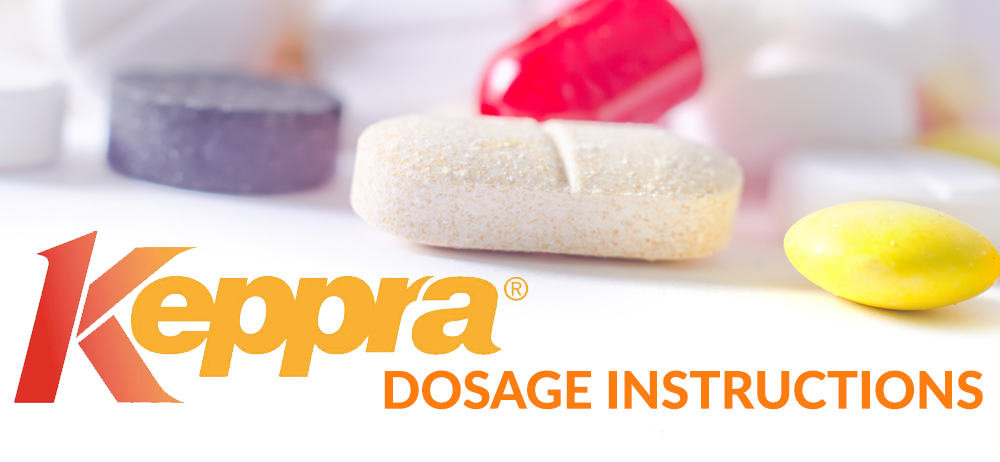
Dosage Instructions
How to take the drug
- The daily dose of Keppra is divided into 2 identical intakes.
- Tablets should be taken orally, with a sufficient amount of liquid, regardless of food intake.
- Dosage of the solution is carried out using a measuring syringe with a nominal capacity of 10 ml (corresponding to 1 g of Levetiracetam) and graduated in 25 mg (corresponding to 0.25 ml) supplied with the drug. The metered dose of the drug is diluted in a glass of water (200 ml).
Monotherapy
- Keppra is prescribed in the form of tablets or a solution for ingestion in an initial dose of 500 mg divided into 2 divided intakes (250 mg twice daily) for adults and adolescents over 16 years old. After 2 weeks, the dose may be increased to the initial therapeutic dose – 1 g (500 mg 2 times/day).
- The maximum daily dose is 3 g (1.5 g 2 times/day).
A part of complex therapy
- Children aged from 1 month to 6 months: Keppra is prescribed in the form of a solution for oral administration. The initial treatment dose is 7 mg/kg 2 times/day. Depending on the clinical efficacy and tolerability of Keppra, the dose can be increased up to 21 mg/kg 2 times/day. The dose change should not exceed plus or minus 7 mg/kg 2 times/day every 2 weeks. The minimum effective dose should be prescribed.
- Children aged from 6 months to 23 months, children aged from 2 to 11 years and adolescents from 12 to 17 years with a body weight of less than 50 kg: treatment should be started with a dose of 10 mg/kg body weight divided into 2 divided doses (10 mg/kg body weight 2 times/day). Depending on the clinical response and the tolerability of Keppra, the daily dose can be increased up to 30 mg/kg 2 times/day. A dose change by 10 mg/kg body weight can be done every 2 weeks. The minimum effective dose should be taken.
- Children older than 4 years: treatment should be started with a daily dose of 20 mg/kg of the body weight divided into 2 intakes (10 mg/kg of a body weight 2 times/day). A dose change by 20 mg/kg body weight can be performed every 2 weeks until the recommended daily dose is 60 mg/kg body weight (30 mg/kg body weight 2 times/day). In the event of the intolerance of the recommended daily dose, it is possible to reduce it. The minimum effective dose should be taken.
- The drug should be prescribed in the most appropriate dosage form and dose, depending on the patient’s body weight and the required therapeutic dose.
- Children with body weight ≤ 20 kg: it is advised to start treatment with taking the drug in the form of a solution for oral administration.
- Children with body weight > 50 kg: the dose is taken according to the scheme given for adults.
- Adults and adolescents over 16 years of age with a body weight of more than 50 kg should be treated with a daily dose of 1 g divided into 2 divided doses (500 mg 2 times/day). Depending on the clinical response and the tolerability of the drug, the daily dose can be increased to a maximum of 3 g (1.5 g 2 times/day). A dose change by 500 mg 2 times/day can be carried out every 2-4 weeks.
- Since Levetiracetam is excreted by the kidneys, when the drug is administered to elderly patients and patients with renal insufficiency, the dose should be adjusted depending on the magnitude of the CC.
- Children with renal insufficiency: the dose adjustment of Levetiracetam should be made taking into account the degree of renal failure, using recommendations given for adults.
- Patients with the impaired liver function of mild to moderate severity do not need to adjust the dosage regimen. The value of CC may not reflect the true extent of renal dysfunction in patients with decompensated hepatic impairment and renal insufficiency. Therefore, at a CC <70 ml/min, a daily dose reduction of 50% is recommended.
Overdose
Symptoms: drowsiness, anxiety, aggressiveness, oppression of consciousness, respiratory depression, and coma.
Treatment: in the acute period – induced vomiting and gastric lavage followed by the appointment of activated charcoal. There is no specific antidote for Levetiracetam. If necessary, symptomatic treatment in a hospital using hemodialysis is performed (dialysis efficiency for Levetiracetam is 60%, for its primary metabolite – 74%).